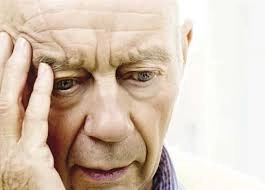
Alzheimer’s vs. Age-Related Memory Loss: Differences and Follow-Up
Published on: 2025-06-29 | Written by: Dr. Ahmed Mohamed Mohsen, Lecturer and Consultant of Internal Medicine and Geriatrics
Dr. Ahmed Mohamed Mohsen, Lecturer, Consultant, and PhD in Internal Medicine and Geriatrics, and Director of Emergency and Reception at Alexandria Main University Hospital, explains the key differences between normal age-related forgetfulness and Alzheimer’s disease. He also shares expert advice on proper follow-up and comprehensive care for the elderly.
Is All Memory Loss in the Elderly a Sign of Alzheimer’s?
The answer is no.
Dr. Ahmed Mohamed Mohsen clarifies that mild forgetfulness is often a natural part of aging—such as forgetting names, places, or appointments—especially when it doesn’t affect daily functioning.
In contrast, Alzheimer’s is a progressive, degenerative disease that impacts memory, thinking, and behavior, and it requires accurate diagnosis and long-term care.
Key Differences Between Age-Related Memory Loss and Alzheimer’s:
| Criteria | Age-Related Forgetfulness | Alzheimer’s Disease |
|---|---|---|
| Type of Memory Loss | Forgetting minor details | Forgetting important or frequent events |
| Ability to Recall Later | Information usually returns | Memory loss worsens over time |
| Decision-Making Ability | Remains intact | Gradual decline |
| Behavior | Typically unchanged | May include unusual or erratic behavior |
Dr. Ahmed Mohamed Mohsen stresses that early evaluation can slow disease progression and greatly improve the patient’s and family’s quality of life.
Stages of Alzheimer’s as Described by Dr. Ahmed Mohamed Mohsen:
-
Mild Forgetfulness Stage: Difficulty remembering appointments, places, or words.
-
Confusion Stage: Forgetting familiar people or getting lost in known places.
-
Advanced Stage: Loss of speech, mobility, and ability to perform daily tasks.
Diagnostic and Follow-Up Methods:
-
Comprehensive Clinical Evaluation: Used by Dr. Ahmed Mohamed Mohsen to identify the cause and type of memory loss.
-
Cognitive Function Tests: Such as the Mini-Mental State Examination (MMSE).
-
Blood Tests and Neurological Screenings: To rule out conditions like vitamin B12 deficiency or hypothyroidism.
-
CT Scan or MRI of the Brain: To detect structural brain changes.
The Role of Family in Ongoing Care:
-
Create a calm, distraction-free environment
-
Use routines and repetition to support memory
-
Be patient and provide emotional support
-
Schedule regular doctor visits to adjust treatment as needed
Dr. Ahmed Mohamed Mohsen advises families to never ignore persistent memory issues and to monitor behavioral changes early.

